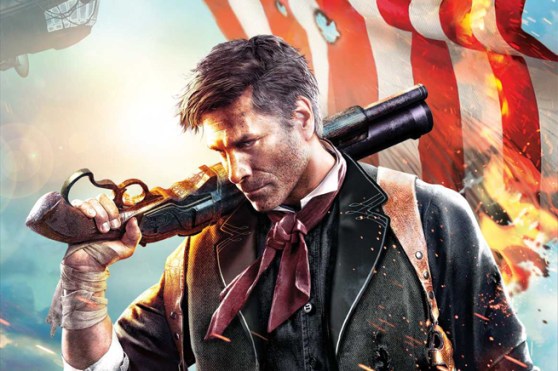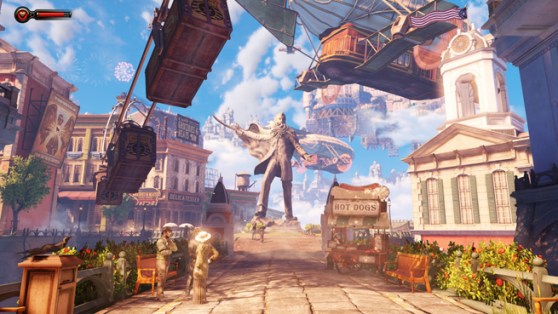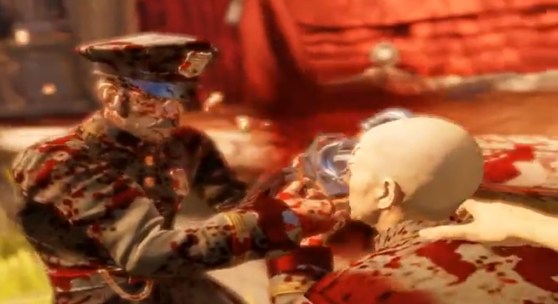[This article contains MAJOR SPOILERS for BioShock Infinite — Ed.]
It’s not every day that video game players complain that a video game is too violent.
You’d expect the almost universally praised BioShock Infinite (available on Xbox 360, PlayStation 3, and PC) to undergo a loyalty test on Glenn Beck’s far-right website, considering how it combines religion and politics to skewer the idea of American exceptionalism, but the far more interesting detractions come from inside the video game industry itself. Their verdict? Infinite shot itself in the foot with its over-the-top, unnecessary gore. Kirk Hamilton at Kotaku compiled a fairly damning photo essay on the disconnect between nuanced story and bloody massacres. Penny Arcade made its three-panel comment. Even former Epic Games design director Cliff Bleszinski, inventor of none-too-subtle chain saw bayonet for Gears of War, suggested less would’ve been more.
I won’t say they’re wrong. But I can say without hesitation that Infinite’s often-gruesome carnage makes a very important point … one that enhances the overall experience far more than it detracts.
The first 30 minutes set you up. Infinite introduces you, playing as former Pinkerton agent Booker DeWitt, to the wonderous floating city of Columbia with a deliberate, gentle hand. No killing. No violence. This is a sunny, brilliant, magical place where barges float in carrying barbershop quartets singing The Beach Boys’ “God Only Knows.” It’s festival day. Everyone’s happy. Everything’s bright and beautiful.
Then this happens:
Cracks show in the utopia well before you grind a guy’s face into hamburger. That happens just after you’re invited to “throw the first ball!” at the celebratory stoning of an interracial couple. Infinite swiftly follows that emotionally brutal choice with this physical violence, and it’s a completely wrenching moment, totally disconnected from everything you’ve done for the last half-hour.
I confess, I wasn’t ready for it. The shift in tone hits without mercy. Columbia is not perfect. It’s ugly, xenophobic, and ready to explode.
Narratively speaking, that’s a success. The veil drops like a hammer, and you’re right in that moment when it falls, engaged and reacting as designed. From here, the blood flows in great, rushing rivers for the next 12 hours. Heads explode in your sniper scope. Melee attacks routinely involve bloody decapitation. Crows feast on people whom you also set on fire.
I can see where that’s kind of a turn-off, and given the far more gruesome extremities of its competition, that’s saying something. And truth be told, Booker’s ultra-violent killing spree extends well past that one very effective moment. Fortunately, Infinite has a much more potent trick up its sleeve.



